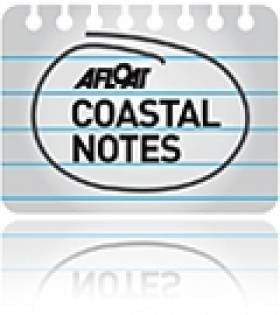Displaying items by tag: Protect Dublin Bay,Dalkey Island and Killiney Bay from Large Oil Dril 2012
Dalkey Meeting to Discuss Proposed Oil Drilling
#'DALKEY ISLAND' PROSPECT – In response to a proposed exploratory search for oil and gas operation by Providence Resources off Dalkey Island, Co. Dublin, as previously reported on Afloat.ie, a public meeting is to be held by Dalkey Community Council next week, writes Jehan Ashmore.
The meeting to be held next Tuesday in Dalkey Town Hall (at 7.30 p.m.) is to discuss the Providence venture, named 'Dalkey Island' prospect, in reference to the island off the south-side suburb. The island and the coast along Dalkey is geographically the nearest landfall to where the proposed 'jack-up' drill rig would operate in block (33/21) in the Kish Bank Basin.
An online petition (see www.protectourcoast.net) by campaigners, entitled 'Protect Dublin Bay, Dalkey Island and Killiney Bay from Large Oil Drill 2012', has already gained large support, including signatures from overseas. They are in protest over Providence Resources application for a foreshore license which has been lodged with the Department of Environment.
Providence Resources propose to drill a single borehole for the exploratory well which is likely to be in an area only 6kms offshore of the Dalkey coastline. The island is designated a Special Protection Area (SPA) and notably where there have been sightings of bottlenose dolphins in neighbouring Killiney Bay.
Should the oil be commercially viable, the benefits of becoming self-sufficient and security of supply would be of significant economic benefit to Ireland. To date 100% of the country's oil and 95% of its gas is currently imported, and yet most of Ireland's natural resources are unexplored, according to Providence Resources.
Exploration is an expensive exercise and has no guarantee of discovery while the timeframe from discovery to production can typically take five to seven years.
"Yet," say Providence Resources, "the implications of discovering and utilising such a natural resource, and potentially becoming self-sufficient in energy terms, would be of significant economic benefit for Ireland Inc. in terms of taxation, employment, security of supply and skills development."
To read more information about Dalkey Island Prospect from Providence Resources, with maps, montages (including views from White Rock Beach) newsletters and video presentation visit www.providenceresources.com/dalkeyisland.aspx
- Dublin Bay
- bottlenose dolphins
- dalkey
- Dalkey Island
- Providence Resources
- Kish Bank Basin
- Coastal Notes
- Killiney Bay
- Special Protection Area
- Dalkey Community Council
- Foreshore License
- SPA
- 'Dalkey Island' prospect
- Coastal note news
- Department of Environment
- ProtectOurCoast
- Protect Dublin Bay,Dalkey Island and Killiney Bay from Large Oil Dril 2012
























































